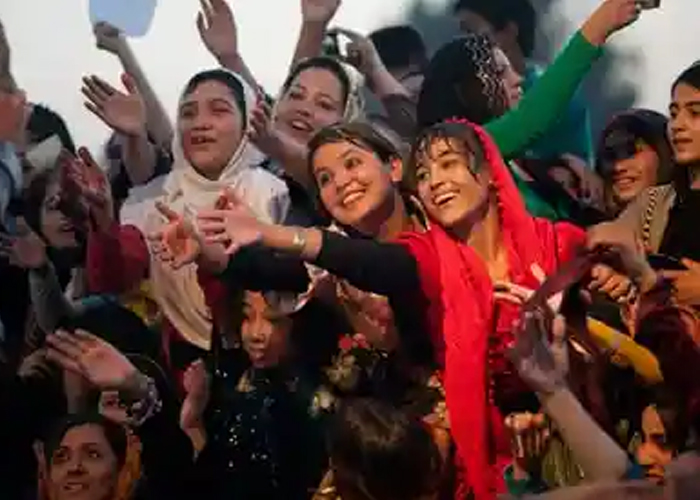Although there is no accurate definition about minorities in Afghanistan, there are increasingly fears and concerns about future of minority groups or marginalized groups with going through sensitive steps of peace process. Sooner or later, Afghanistan has to go through one of the most sensitive moments in its history, but no one knows what the historical destiny would bring out for the marginalized groups in the country. On one hand, the people of Afghanistan, who have been suffering from insecurity and economic problems for decades, are waiting for the results of the peace and reconciliation talks. On the other hand, they are concerned of losing their rights, freedoms and past achievement which were gained at a very high cost in last two decades.
Prior to the arrival of international forces and establishment of the current government, the Taliban government ruled over the fate of the people while neither they had national legitimacy nor international legitimacy.
The group had enacted strict laws at the domestic level that threatened individual, civil and social freedoms above all else.
Even though the current situation with the successive failures and inabilities are not an ideal condition for Afghan people, they are seriously worried about losing the minimum security and freedom in the country.
the current situation, namely the presence of a relatively legitimate government along with more civil and democratic laws and, of course, limited economic development, has been able to make Afghanistan more beautiful than the Taliban and Mujahideen eras; therefore, the return of the Taliban and the sharing of power with a group that has killed many of our people in two decades and have no commitment in human rights and also not believe in a pluralistic system in the country does not show a very bright and hopeful vision for the future of the country, unless the regional and internal allies guarantee the legitimate demand of Afghan people.
Therefore, Afghan people are especially worried about the rights of marginalized minorities and women in the country.
Although the Tehreek-e-Taliba denies their ethnic nature and feature, their actions reflect their ethnic character in an extremist and fascist manner in recent history. The absolute majority of the members of the Taliban leadership council and all their military commanders were and are from a particular ethnic group.
The Tehreek-e-Taliban has a heterogeneous and incoherent composition from the jihadi leaders to the local thugs (the communists and secularists to the most fanatical), have gathered under a white flag to revive the absolute sovereignty of a certain racial group in the country. With a brief look at past changes and developments, it can be said that all the conflicts and civil wars in Afghanistan, during the Mujahideen regime and then during the Taliban era, were rooted in the issue of ignoring the rights of different ethnic groups and women.
In short, most of the governments in the past imposed great oppression on other ethnic groups because they could not tolerate the presence of deprived tribes in power and fought to revive the old tradition which was the domination of a certain tribe or family on the whole. Some fought to retain the power they had gained, while others fought to establish their political and social identities and realize their lost rights after a long-standing historical tradition of injustice and structural discrimination from past regimes. Certainly, if the rights of all the tribes living in Afghanistan were taken into account at all these stages, the people of Afghanistan would not only not have tasted the bitter taste of all these painful calamities, but also they would have reaped the fruits of their fights and struggles with pride and glory.
Therefore, the rights of ethnic groups and women must be addressed in the peace dialogue. The fundamental rights and freedoms of women as well as the rights of social groups that have always lived on the margins of the country as deprived ethnic groups and have played little role in the past and present, are factors that must be considered in this strategic opportunity. Ethnic group rights and women rights are human rights and so no human must be discriminated because of belonging to certain race and gender. It should not be forgotten that the issue of the rights of ethnic groups and minorities was and is a very important and sensitivity issue in the country’s social context and structure; without realizing the rights of minority groups, no genuine national unity, peace or state building are feasible in the country.
Lastly, it is also the moral and political responsibility of the UN and international allies to play key role in preserving minority rights and women rights in the current peace process.
During Tramps, it was nearly two years that there was a negotiation between the United States then not only not changed the fragile situation of minority groups but farther marginalized them from the peace table. We think that the new US administration, unlike the previous one, believes in the values of human rights, pluralism, and the recognition of the rights of minorities and women. Therefore, the expectation of Afghan minority groups and women from the United States and the international community is that the protection of women’s rights and minority groups should be defined as a fundamental principle.
Otherwise, no lasting peace would be built on deprivation and victimization of others in the country.
Home » Opinion » Fears and Concerns about the Future of Minority Groups and Women in Afghanistan
Fears and Concerns about the Future of Minority Groups and Women in Afghanistan
| Mohammad Zahir Akbari

